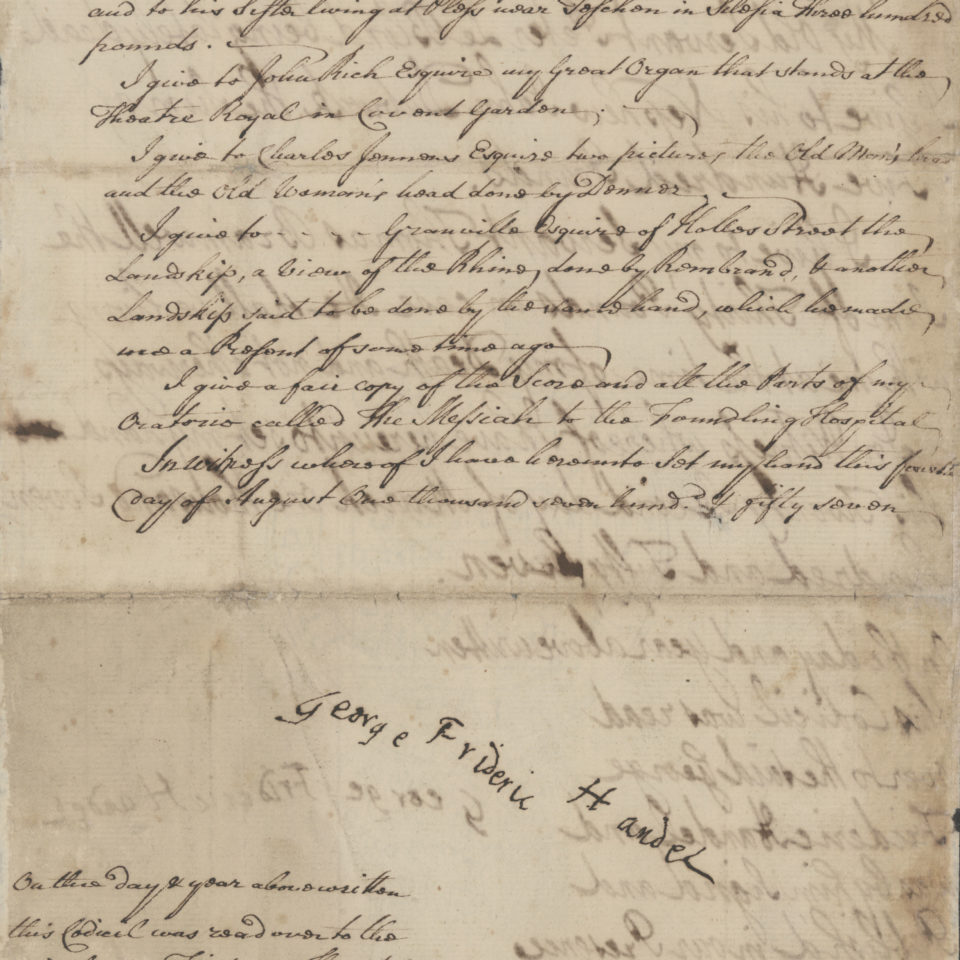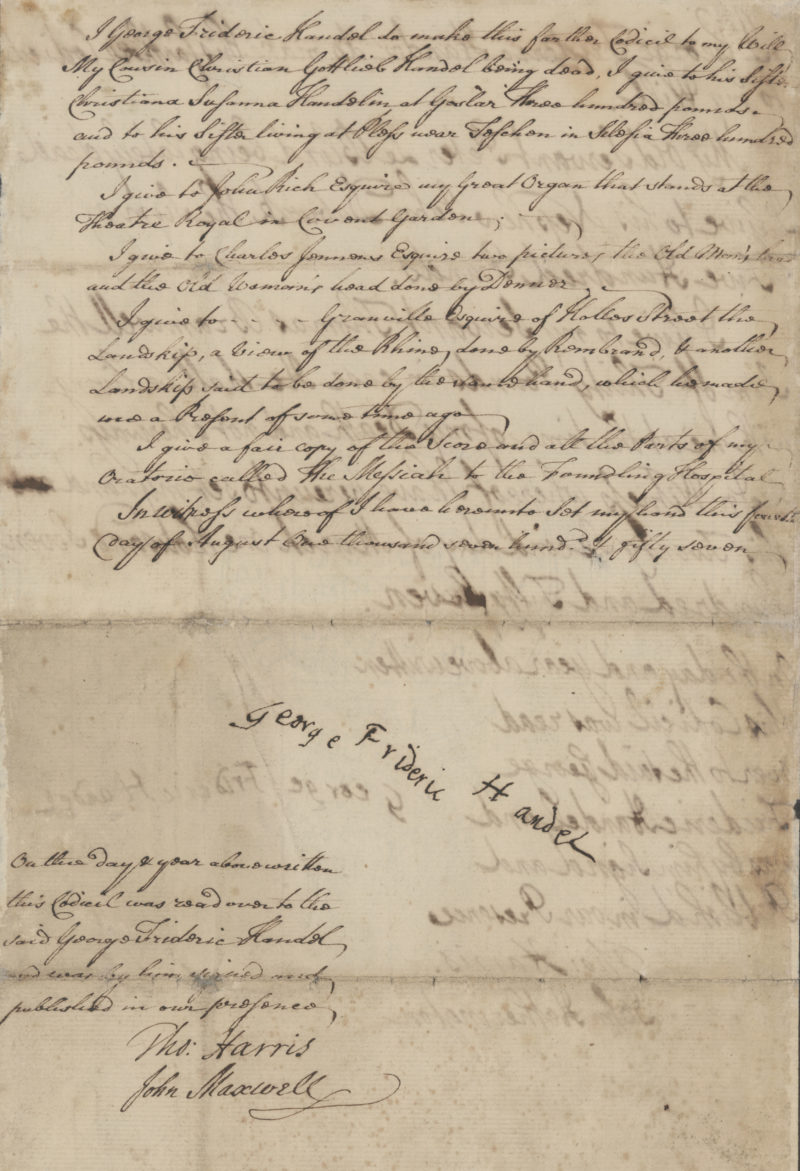About the object
German-born Baroque composer George Frideric Handel wrote his will in 1750. He later added four codicils, written out and witnessed variously by Thomas Hetherington, John Maxwell, Thomas Harris, A. Rudd and John Christopher Smith — as Handel, by this time, was losing his sight. The last codicil is dated 11 April 1759, shortly before the composer died. The third codicil, dated 4 August 1757, includes a bequest to the Foundling Hospital of “a fair copy of the Score and all the Parts of my oratorio called The Messiah.” Copies of Messiah were then duly written out and sent to the Hospital. Owning these copies enabled the charity to continue their successful benefit performances. A volume of the score can now be seen in the Museum’s Handel Gallery, near the Will.
Handel’s estate amounted to almost £20,000 at the end of his life. Generous to the end, Handel left over thirty specific bequests to friends, family, and staff. Unusually, for the time, his servant was the first person mentioned.
About the artist
Handel supported the Hospital with benefit performances, the first of which occurred in 1749. His Foundling Hospital Anthem and his oratorio Messiah were the two pieces most closely associated with the charity.

